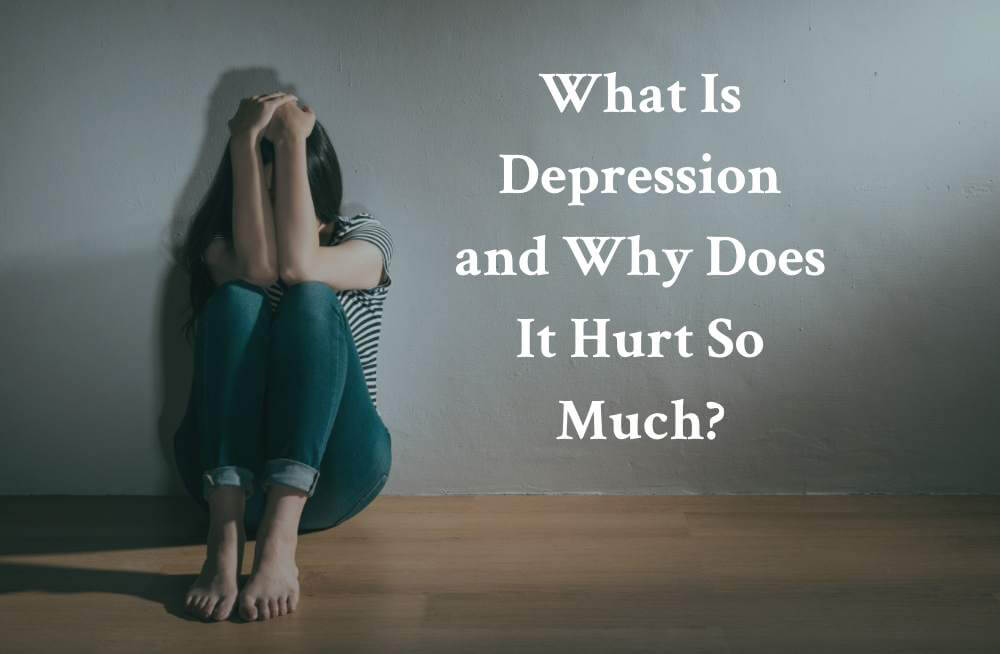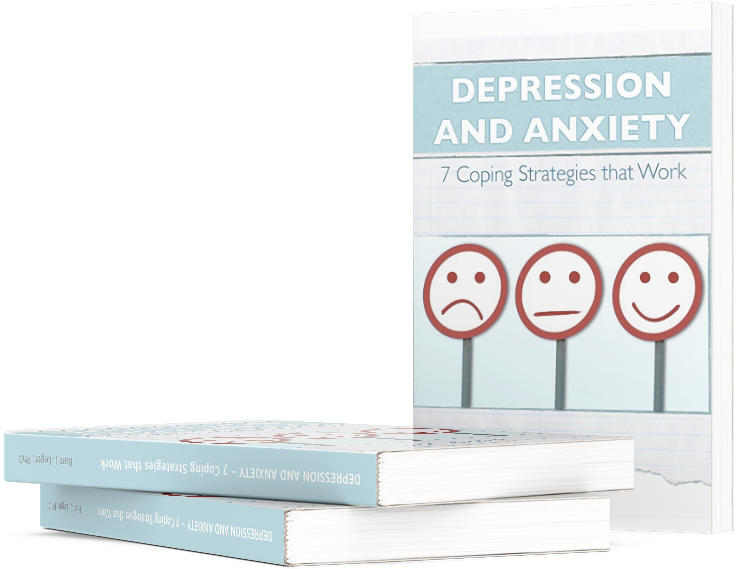What Is Depression and Why Does It Hurt So Much?

It's been called the common cold of mental health. Who hasn't felt depressed from time to time? You may have called it "the blues." Or maybe "down in the dumps." But it happens to the best of us.
Depressing isn't it? Well, it's just reality. The best estimates are that from 5 to 20 percent of us will suffer a major, incapacitating depression at some point in our lives. We may even be hospitalized or medicated or nonfunctional for a significant length of time.
According to the CDC, depression is a leading cause of disability in the United States for individuals 15-44.
If you ask a group of people who've suffered from clinical depression to define the illness, you'll hear various answers. Depression is a very personal experience that millions of people all over the world experience.
Different people manifest different symptoms, but one thing is sure: depression is a complex illness that can destroy your life if left unresolved.
Many people with depression describe it as a sense of despair that engulfs everything they do and everything they feel.
If you think being depressed is akin to feeling sad because your favorite team just lost the championship game, you really have no idea what suffering from a true depression is like. Depression is much deeper and more invasive than sadness or frustration.
Depression is a term that we all use in an everyday sense. Something mildly upsetting happens to us, and we get "the blues" for a while, and then we recover. This is not what happens in major depression.
One issue is chronicity. For major depression to be diagnosed, among other things, the symptoms need to have persisted for at least two weeks.
The other is severity. Major depression is a crippling disorder that leads people to attempt suicide. Its victims may lose their jobs, family, and all social contact because they cannot force themselves to get out of bed. Sufferers may refuse to seek professional help because they feel they don't deserve to get better.
Depression takes everything away from you; it saps your energy, focus, concentration, and especially your joy. You just don't care about anything; nothing matters, and even the people you love become unimportant.
If you're depressed for an extended period, you become accustomed to the feeling, and any other emotion becomes unfamiliar and even frightening.
Physical Concerns of Depression
Depression doesn't only take its toll on your emotions and mental state; it can cause serious physical problems as well. For example, depression may cause you to either lose your appetite or eat incessantly. It also zaps your energy and motivation.
When you're depressed, you tend to become inactive. This alone can cause several problems, but when added to some of the other physical side effects of depression, it's easy to see why depression is such a serious illness.
In addition, depression can lead to:
1. Lack of sleep. Depression can cause insomnia, which strips the body of the necessary sleep to function properly.
2. Poor nutrition. When depressed, many people fail to take in proper nutrients. It takes too much effort to plan and prepare a meal. This can cause several health problems.
3. Aches and pains. If anyone tells you that your mental state does not affect your physical state, they're wrong. When you're depressed, the chemicals in the brain that signal pain are as affected as the chemicals in your brain that help you feel happy.
- Physical aches and pains increase, which in turn kicks in the sad feelings, and the cycle begins again.
4. Hygiene issues. Someone suffering from depression doesn't have the energy or the motivation to be concerned with self-care.
What are the Symptoms of Depression?
These are some specific things those with depression experience:
- Constant and severe sadness about everything
- Hopelessness
- Insomnia or trouble sleeping
- Irritability
- Trouble concentrating
- Loss of interest in things that once interested them
- Feeling worthless, useless, and strangely guilty for no reason at all
- Profound change in weight, one way or the other
- Lack of energy and fatigue
One thing about depression is certain: it's a serious condition and should be taken seriously.
As depression progresses, it feeds on itself like a snowball rolling downhill. The longer someone is depressed, the worse the depression gets until they see no way out of it at all. They become resigned to being miserable all the time.
Depression can be caused by a particular event, the change of seasons, a loss of someone close, or even a chemical imbalance in the brain. The treatment for depression usually involves counseling or medication that helps alter brain chemistry.
If you know someone who is depressed, the best thing you can do is be his or her friend. Talk to them and help them through this period. Help them seek medical care to treat their illness.
If you think you may be depressed, talk to a health care provider. Depression doesn't have to ruin your life! With help and support, you can conquer your depression, move past it, and go on to live a joyful life.
Do you or someone in your life suffer from depression? Download this free resource to begin taking action to improve physical and mental wellbeing. You can start improving your life now!

Start Feeling Better
Download your FREE eBook and discover 7 coping strategies that work to improve your physical and mental wellbeing if you suffer from depression and anxiety.
Tell me where you would like me to send the link to download your free resource.
Please share this article with someone you know who is dealing with depression. No one should have to go through life in pain.
